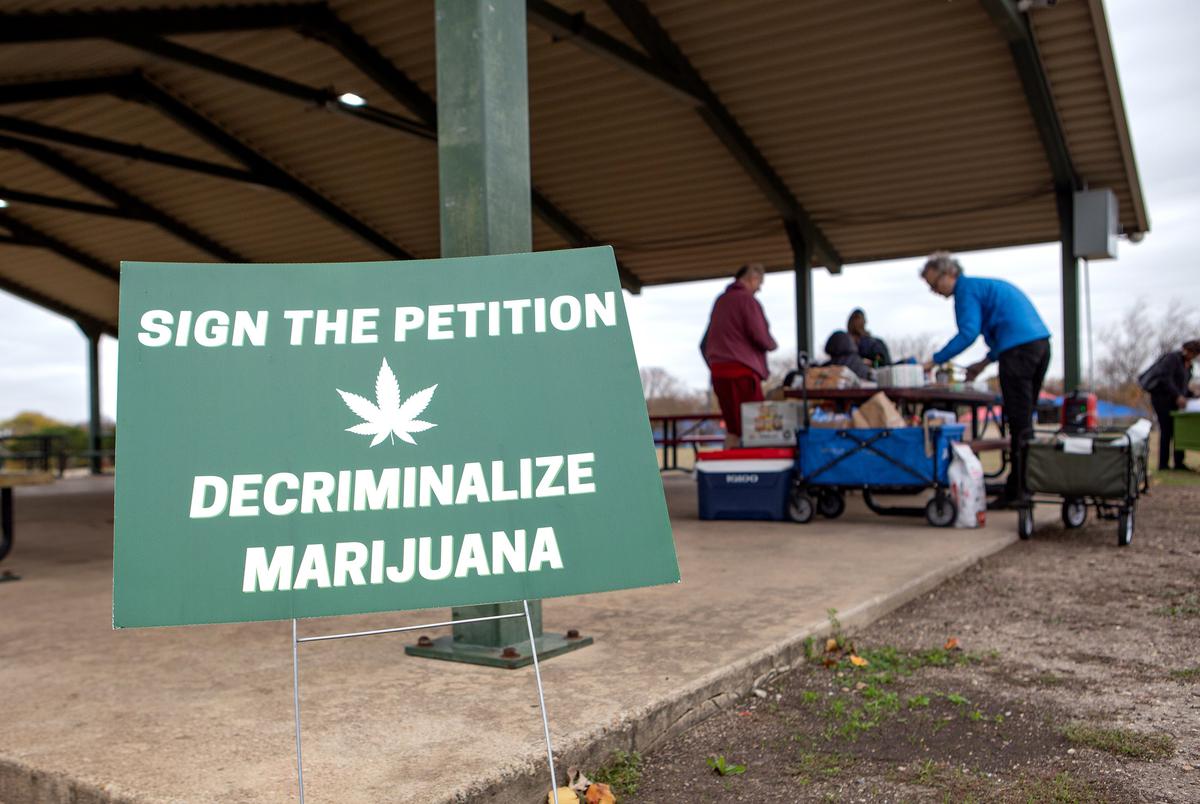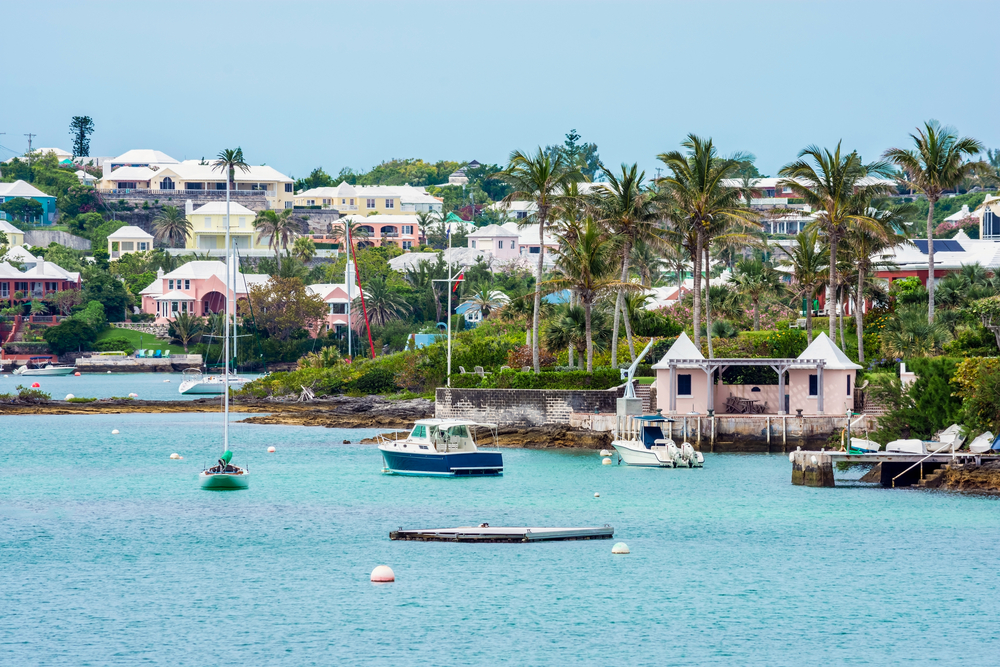Join The Brief, our daily newsletter covering the top stories from the Lone Star State. Voter-approved laws in some Texas cities to cease criminal prosecution against possessing small amounts of marijuana has entered a new chapter of the campaign to legalize the drug, as some city leaders have rejected the rules. Ballot propositions that prohibit arrests and penalties for carrying less than 4 ounces of marijuana were handily adopted by voters in Denton, San Marcos, Killeen, Elgin, and Harker Heights last month.
In addition, they passed new regulations that prevent local governments from paying for THC concentration tests and that eliminate a positive canine reaction to Marijuana as probable cause for a search and seizure in most situations. The war wasn’t won after voters were won over. Since then, activists in certain communities who spearheaded ballot initiatives to change the law have struggled with city and county officials charged with enforcing the changes and implementing the ballot questions.
Those authorities have claimed the initiative is illegal and will make police’s jobs harder. Harker Heights, a community of 33,000 located roughly 55 miles southwest of Waco, has been at the center of the conflict. Although the initiative received over 60% of the vote, the City Council opted to nullify the law only two weeks later. In a subsequent letter, City Manager David Mitchell stated that he believed decriminalization should be determined at the state level.
In a devastating display of disdain for the inhabitants of Harker Heights who used their right to vote in favor of decriminalizing marijuana, the repeal has been enacted. Brian Burt, who voted in favor of the proposition, stated, “I don’t do any form of drugs and neither does my wife, but we’re here for the vote.” Vote or no vote, as Alexandra Burt put it. It is time for that proposal to pass, as we are also aware that minorities disproportionately face the consequences of the law.
The Burts and hundreds of other locals supported a new petition by Ground Game Texas, a progressive nonprofit that co-led the decriminalization campaign, to place the council’s decision to repeal on the May ballot and resurrect the legislation in the interim. The organization’s leader, Julie Oliver, has stated that the council’s move to reverse a popular vote has backfired. This has “truly brought the community together,” she said, because “shutting down someone’s vote is ill-advised.”
Despite the conservative power structure in Texas, activists from throughout the state say they would like the state legislature to approve laws that would decriminalize or even legalize marijuana. We can all see the way that this country is moving, state by state, but it looks like Texas is going to be one of the last,” said Deb Armintor, an organizer with Decriminalize Denton and a former member of the Denton City Council who advocated for decriminalization during her two tenure. A city’s existence is not worth waiting for.
An Intense Struggle Between Cities
In 2019, the state legislature voted to legalize hemp, which has become a focal point of the conflict. Although Marijuana is illegal and hemp is not, the two look and smell very similar to one another. Laboratory testing is the only surefire way to tell if a substance has more than the legal limit of 0.3% THC.
Many prosecutors around the state have abandoned or postponed low-level marijuana possession cases because they lack the resources to meet this criterion, and other police agencies, including Austin’s, have created a policy to not cite or arrest people in most circumstances. That opened the door for the organizers.
When Austin residents voted by 85% to formalize the police department’s policy of decriminalization in May 2022, Ground Game Texas won its first case. “That’s the heart of our reform movement,” said Mike Siegel, the group’s political director. Many other urban centers soon followed. Almost 75% of voters in Elgin, a city of around 10,500 inhabitants east of Austin, decided in favor of decriminalization.
With regard to enforcing the law, its council has been relatively quiet. Municipal entities like city councils and police departments “may not adopt a policy under which the body will not properly enforce laws relating to drugs,” according to the Texas Local Government Code, which has alarmed some city and county leaders.

With this in mind, Republican Bell County District Attorney Henry Garza last month asked the police chief in Killeen, where over 70% of voters favored decriminalization, to rescind his order instructing officers to heed the vote. After some deliberation, the Killeen City Council passed the revised law on December 6; the provision prohibiting police from utilizing the odor of marijuana as probable grounds for search and seizure had been removed.
“The amendment was not preferable, but now our residents do not have to fear an arrest that will affect their employment opportunities, educational opportunities, and housing opportunities,” said Louie Minor, a commissioner-elect for Bell County who worked on the campaigns in both Killeen and Harker Heights.
A similar request for an AG opinion on the ordinance’s enforceability was made recently by Republican Hays County Criminal District Attorney Wes Mau. After the proposition was adopted by voters in San Marcos in November and the City Council in November, the group co-leading the effort, Mano Amiga, quickly pushed back.
Mau has “no plans to bring a lawsuit” in his final month in office, he said. Kelly Higgins, his Democratic successor, is in favor of decriminalization. “The Attorney General cannot reverse the referendum and I am not asking him to,” Mau said in a statement to The Texas Tribune. However, “a ruling on whether the ordinance is enforceable would be useful to the City going ahead.”
More than 70 percent of voters in the North Texas suburb of Denton supported decriminalization, and the City Council has now ratified the measure, making decriminalization law. However, organizers are concerned about its enforcement because City Manager Sara Hensley has opposed enacting parts of it owing to similar difficulties.
In response, activists sent a memo to the city in November, stating that Hensley lacked the ability to make policy and that the city should be allowed to use its discretion in enacting laws to save scarce resources. After some debate, Councilman Brian Beck proposed the council approve a similar proposition to clear up any misunderstandings about the ordinance’s fiscal authority.
The majority of his coworkers never warmed up to him. We at Decriminalize Denton are currently weighing our options, which may include recalling those who voted against Beck’s petition. Mayor Gerard Hudspeth and council members Jesse Davis and Chris Watts, who did not support the proposal, both pointed out that similar legislation already exists and cited restrictions mandated by state law.
The will of the people as expressed in the voting booth must be honored without question. However, Davis stated that the people of Denton cannot alter or avoid State law. Denton City Council member Brandon Chase McGee and other advocates of decriminalization have cited the example of Austin in their advocacy for this policy change.
To the best of McGee’s knowledge, no legal challenges have been lodged against similar ordinances approved in other municipalities around the state. However, Davis and other municipal officials are concerned about the repercussions of anti-decriminalization by state lawmakers.
According to Katharine Neill Harris, a drug policy fellow at Rice University’s Baker Institute, lawmakers have pushed back on other policies they don’t like, such as supporting a bill in 2021 that penalizes localities for decreasing police expenditures. But Neill Harris also pointed out that since 2020, the Austin Police Department has basically decriminalized, and for the previous seven months,
it has followed the ordinance that formalized its policy without any problems. Brandon Jones, the APD’s manager of communications, told the Tribune, “conversations with both the District Attorney’s Office and County Attorney’s Office were critical in ensuring we were all on the same page.”
Global Context
Organizers claimed that the varying reactions from authorities demonstrated the importance of updating marijuana laws at the state level. Some sort of modification in the law at the state level is required. “It needs to be expanded,” said Shirley Fleming, a former member of the Killeen City Council and a key figure in the programs’ leadership in Bell County.
The vast majority of Texans support the full legalization of Marijuana, which goes beyond merely ending its prohibition. As a result of prior attempts to amend state legislation being met with opposition from prominent Republicans, Texas falls behind both large states like California and Illinois and conservative states like Alaska and Montana.
Voters in Texas have not had the opportunity to cast a direct vote on the issue, unlike their counterparts in Maryland and Missouri, because the Legislature decides what appears on the statewide ballot. Twenty-one states and the District of Columbia have authorized recreational marijuana use as of this writing. While hemp and its derivatives like CBD are allowed in Texas, marijuana itself is still banned under state law.
Medical marijuana is authorized in Texas, but only for a small number of conditions, and products can contain no more than 1% of delta-9 THC (the same threshold used by state police to determine whether or not a cannabis product is illegal for any user). Very few people who are eligible to participate in the program have joined it thus far.
According to Neill Harris, a specialist on drug policy, “we continue to have one of the most restrictive medical systems across the United States.” There is no data, she said, to back up the idea that legalizing marijuana would lead to an increase in crime. There is “little evidence” that consuming marijuana raises the risk of using other drugs, according to the Centers for Disease Control and Prevention.
Black Texans and other communities of color, according to proponents of marijuana decriminalization, are disproportionately affected by marijuana enforcement and the resultant damage on their records notwithstanding the legal backlog. As a result, the number of arrests for marijuana possession in the state has dropped from a recent high of around 74,000 in 2010 to under 23,000 in 2021, and this trend is expected to continue as hemp legalization spreads across the country.
Data from public-records requests made by community activists in 2021 and examined by the Tribune sheds light on this matter. Data from 2019 and 2020 showed that 35% of all arrests made by Denton police featured Black people, despite the fact that Black people make up only 11.5% of the city’s total population. Although just 39% of Killeen’s population is Black, around 75% of arrests made by police between 2019 and early May 2021 featured Black people.
Fleming argued that police should prioritize more pressing issues than cracking down on minor marijuana offenses among people of color. The message delivered by these city councils’ votes to decriminalize has found support among certain state legislators. Joe Moody, a Democrat from El Paso, stated as much when he explained the consequences of delaying state action on issues with which the vast majority of Texans agreed.
Moody has been pushing for marijuana legalization for a long time. Moody proposed House Bill 218 to lessen the punishment for possessing 1 ounce of marijuana and allow for records expungement in certain situations, adding to the plethora of proposals already filed for the 2017 legislative session that seek to soften marijuana regulations. His 2019 bill to loosen marijuana regulations was supported by both parties in the House but lost in the Senate under Lt. Gov.
Dan Patrick. Despite this, Moody has a positive outlook. Experts agree that moderate legislation like his has the best chance of passing the Senate while the Republicans are in power. Meanwhile, the organizers vow to keep making waves all around the state. There has been a drive in San Antonio since October to place a question on the May ballot that would legalize Marijuana and abortion but would outlaw no-knock warrants and police chokeholds.
Local and state organizers for Ground Game Texas are aiming for 35,000 signatures by the beginning of January, with a goal of collecting the necessary 20,000 verified signatures. So far, more than 75% of the target has been funded by the campaign. Act 4 SA executive director Ananda Tomas said, “Folks are thrilled and motivated to vote for something that is more than a politician.” Local authorities have begun their opposition.
Last month, officers from the San Antonio Police Officers’ Association took out a full-page newspaper ad to voice their opposition to the initiative. A comprehensive prohibition on chokeholds is being suggested, and the association’s president, Danny Diaz, said in a statement that the association wanted to send a message to voters that “some things are too good to be true.”
Chokeholds are illegal in the city to save in self-defense situations, although this ban has not yet been codified and could be reversed by a future administration. Despite these setbacks, Ground Game Texas and local activists are continuing to work toward decriminalizing through citywide ballots and, by extension, engaging voters. Oliver remarked, “It’s so enormously popular, and it’ll get people out to vote.” I quote: “That’s exactly what our state needs.”





